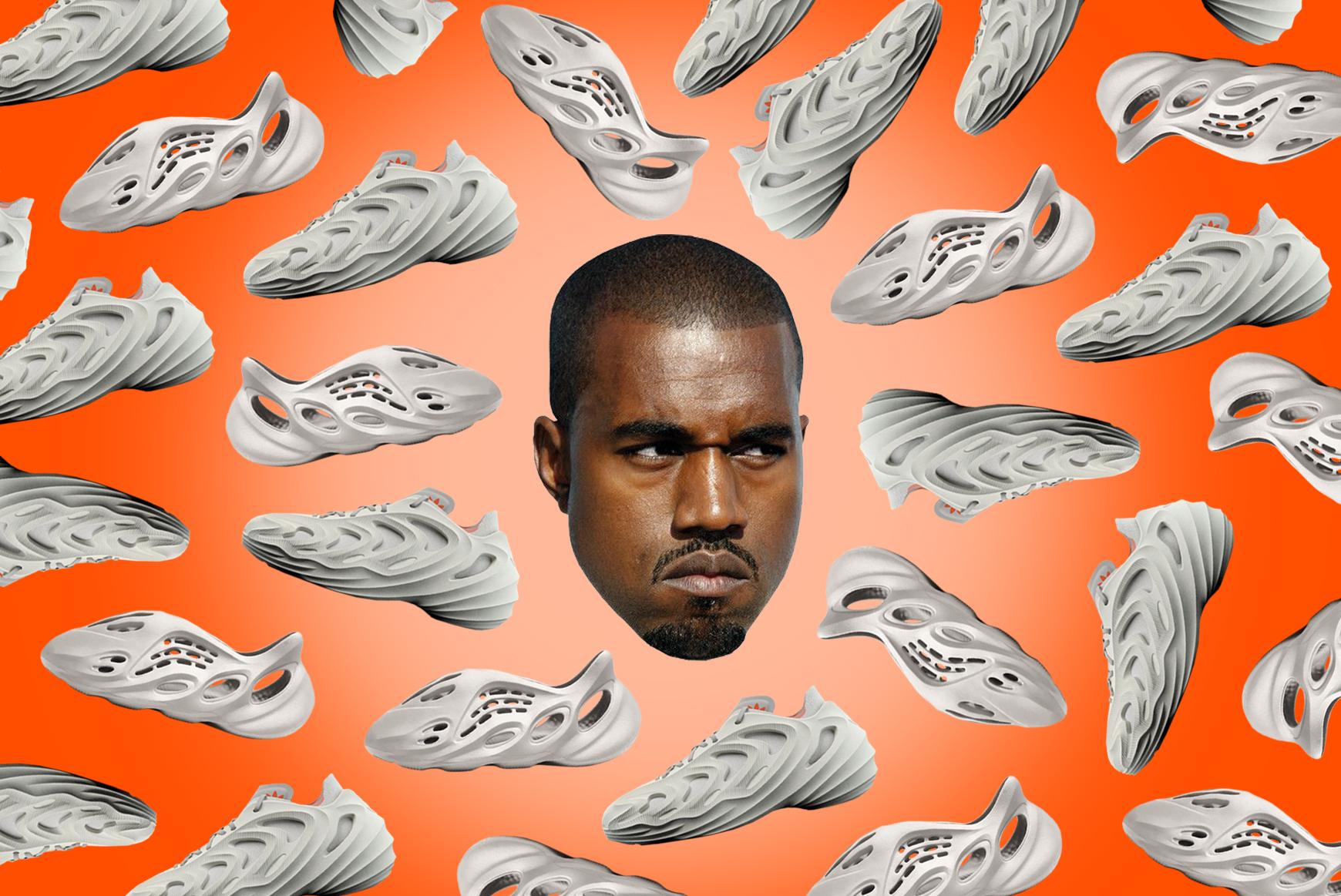Real Talk: Kanye, adidas, and the Problematic Nature of Sneaker Collaborations
For many designers, artists, and creatives, getting a sneaker collaboration is a bucket list item.
The opportunity to work with a major sportswear brand can be career-changing, especially because, over the last decade, collaborations have been the number-one driving force in the sneaker hype cycle. But collaborations can also be problematic, especially when it comes to partners getting the credit they deserve and navigating the nebulous world of intellectual property.

The YEEZY Slide Saga
Right now, is on social media airing his woes with longtime partner and a more recent collaborator, GAP. For the amount of speculation and opinion on the web, it’s challenging for anyone to dish out a hot take without sitting down and reading Ye’s contracts. But if we are to believe Ye’s claims, it seems adidas may have made some unfair decisions regarding the without his consent.
In a matter of days, , saying he never approved of the promotion, before calling out the German sportswear brand for imitating two of his YEEZY footwear designs. West claimed that the adidas Adilette 22 slide and the adidas are far too similar to the YEEZY slide and , respectively. It’s a hard case to prove on paper, especially because the Adilette is one of adidas’ most well-established designs. But to the average consumer, these products look like takedowns of the YEEZY versions, and popular opinion is crucial in this discussion. West also alleged that GAP sold items inspired by his designs without giving him proper credit.
One thing’s for sure, the fashion and footwear industries are rife with copying and trend hopping, lawsuits happen all the time, and has built its entire brand on being inspired by other designs. But what about brands copying their collaborators, as in the allegations made by West?
What’s the Difference Between Me and You?
Take a moment and check out this ‘UNC’. If you think it looks familiar, open another tab and check out collaborations with on the I and IV. There are more than a few similarities. In the wake of the Kanye versus adidas beef, another Nike collaborator, Errolson Hugh from , chimed in on Instagram, revealing he’s also witnessed numerous brands try to rip off his IP.
For decades, a parallel conversation has been going on in the music industry. Record labels are notorious for signing artists to manipulative agreements that exploit IP, and artists like Lil Uzi Vert and Megan Thee Stallion have chronicled their struggles with getting out of bad deals. In many cases, labels also own the copyright to the original sound recordings, but recently, some artists like have started to buy back their masters as they become warier of boardroom negotiations. successfully got out of his exploitative contract and finessed Def Jam after a ‘seven-year chess game’, according to Ocean in The New York Times.
Negotiation Complications
But there’s hope. In recent interview with Fast Company, the designer revealed how he secured royalties during negotiations around his sneaker collaborations. Without naming partners Crocs or New Balance directly, Bembury noted, ‘Kanye left Nike because they wouldn’t give him royalties, and the fact that I now receive them from multiple companies shows how the space has evolved.’ If you look at the more integrated roles that has signed with – or with – it’s clear that brands are beginning to change their thinking around how they collaborate equitably with designers. Behemoths like Nike and adidas may take a bit more convincing.
In both the music and footwear industries, a reckoning is needed. Brands should be happy to provide equity to collaborators or partners who truly move the needle, whether you’re Kanye West, Frank Ocean, or Salehe Bembury. Unfortunately, the solution is more complex than ‘Why can’t we all just get along’, and in some cases, collaborators need to start playing hardball, just like Ye is doing with adidas and GAP.
Kanye is in a unique position thanks to his hyper-loyal fanbase and near-cult following, so in this case, he may be able to use the court of public opinion to sway things in his favour. But not every designer or artist has the clout or the following to push back against global brands. The change has to come within brands, but only once they realize that equity is the way forward, rather than the mindset of ‘How much can we get away with?’
Ye put it best when he said, ‘How I ain’t bring nothing to the table when I’m the table?’
